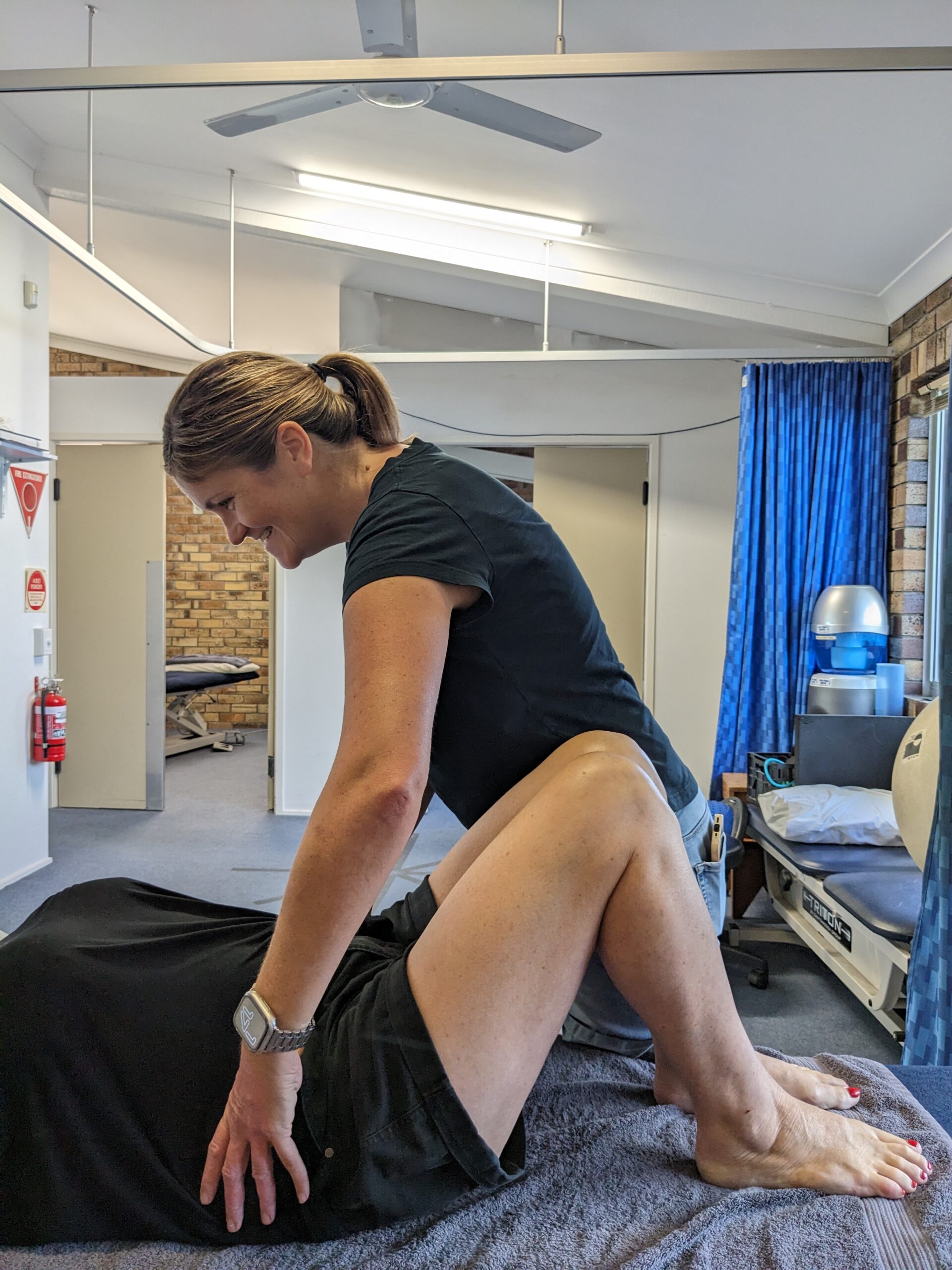Understanding Stress Urinary Incontinence: Causes, Treatment, and Prevention

Stress urinary incontinence (SUI) is a common condition affecting millions of individuals worldwide, predominantly women. Defined as the involuntary leakage of urine during physical activities that put pressure on the bladder, such as coughing, sneezing, laughing, or exercising, SUI can significantly impact one’s quality of life. In this blog post, we will explore the causes, treatment options, and preventive measures for stress urinary incontinence. Women’s Health Physiotherapists can help you address SUI, call us at Palm Beach Physiotherapy and make an appointment with Rachael Bryans to start addressing SUI today!
Understanding the Causes
The pelvic floor muscles, ligaments, and tissues support the bladder and urethra, playing a crucial role in urinary continence. Weakness or damage to these structures can lead to SUI. Several factors contribute to the development of SUI, including:
Childbirth: Vaginal childbirth can stretch and weaken the pelvic floor muscles and nerves, increasing the risk of SUI, especially if there were complications during delivery.
Age: As individuals age, the pelvic floor muscles may weaken naturally, making them more susceptible to urinary incontinence.
Hormonal Changes: Reduced estrogen levels during menopause can lead to changes in the urinary tract and pelvic floor muscles, contributing to SUI.
Obesity: Excess weight puts additional pressure on the bladder and pelvic floor muscles, increasing the risk of stress urinary incontinence.
Treatment Options
Fortunately, there are several treatment options available to manage stress urinary incontinence effectively. These include:
Pelvic Floor Muscle Exercises: Strengthening the pelvic floor muscles through exercises like Kegels can help improve bladder control and reduce episodes of leakage. Physiotherapists are experts prescribing these exercises, Rachael Bryans at Palm Beach Physiotherapy has been helping women who suffer from SUI for many years.
Lifestyle Modifications: Making dietary changes, maintaining a healthy weight, and avoiding activities that exacerbate symptoms can help manage SUI.
Bladder Training: Training the bladder to hold urine for longer periods can help reduce the frequency of urinary leakage.
Electrical Stimulation: This therapy involves using electrical currents to strengthen the pelvic floor muscles and improve bladder control.
Medications: In some cases, medications may be prescribed to relax the bladder or strengthen the urethral sphincter.
Surgical Options: For severe cases of SUI that do not respond to conservative treatments, surgical interventions such as sling procedures or bladder neck suspension may be recommended.
Preventive Measures
While not all cases of stress urinary incontinence can be prevented, certain measures can help reduce the risk of developing the condition:
Maintain a Healthy Weight: Excess weight can put pressure on the bladder and pelvic floor muscles, increasing the risk of SUI. Adopting a healthy diet and regular exercise routine can help maintain a healthy weight. Physiotherapists are experts at developing individualised exercise routines minimising the chance of injury to promote weight loss. Rachael Bryans at Palm Beach Physio has been helping ladies in Palm Beach and surrounding suburbs for 10+ years with these issues.
Practice Pelvic Floor Exercises: Regularly performing pelvic floor exercises can strengthen the muscles that support the bladder and urethra, reducing the risk of SUI. Womens Health Physiotherapists can get you started with an appropriate pelvic floor exercise program.
Stay Hydrated: While it may seem counterintuitive, staying hydrated can actually help prevent urinary incontinence by keeping the bladder healthy and preventing irritation.
Avoid Smoking: Smoking can weaken the muscles and tissues in the pelvic region, increasing the risk of SUI. Quitting smoking can improve overall bladder health.
Conclusion
Stress urinary incontinence (SUI) is a common condition affecting millions of individuals worldwide, predominantly women. Women’s Health Physiotherapists can help you address SUI, call us at Palm Beach Physiotherapy and make an appointment with Rachael Bryans to start addressing SUI today!